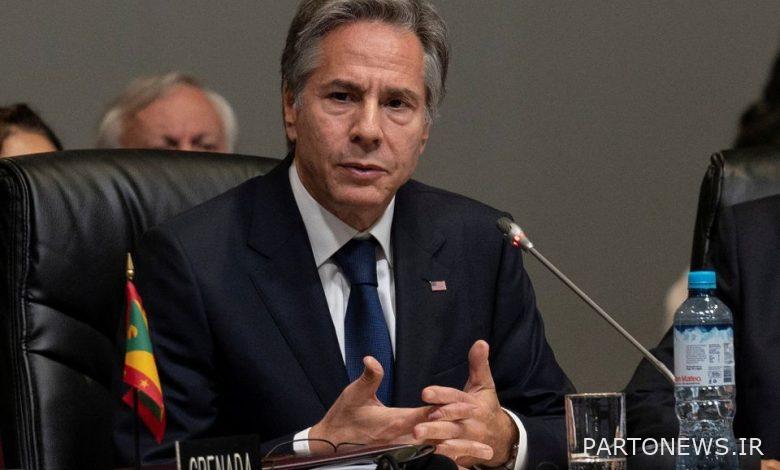Washington threatened Riyadh with countermeasures

According to IRNA’s report on Friday from Reuters news agency; Blinken said in Lima, the capital of Peru, that we are examining a number of options for a response and consulting closely with Congress regarding relations with Riyadh.
Belliniken did not specify what countermeasures Washington is considering.
The administration of Democratic President Joe Biden of the United States is considering its reaction to this decision following Wednesday’s agreement by major oil producing countries known as OPEC+, including Russia, to reduce oil production.
Democratic members of the United States Congress on Thursday demanded a reduction in the sale of military weapons to Saudi Arabia, and others questioned Washington’s security relationship with Riyadh by protesting the deaths of civilians in the country’s military operations in Yemen, as well as human rights violations.
The Biden government is worried about the rapid increase in the price of gasoline in the United States on the eve of the November 8 mid-term elections, in which the Democrats will defend their leadership of the House of Representatives and the Senate.
Blinken emphasized that Washington will not make a decision that will harm its interests.
According to IRNA; On Thursday local time, US President Joe Biden called the OPEC+ decision disappointing and announced that the US is looking for alternatives.
Regarding OPEC+’s decision to reduce oil production, Biden said: We are considering various options available to us, but we have not made a decision yet.
OPEC+ agreed on the sharpest reduction in oil production and supply since the beginning of the Corona epidemic in 2020 at the meeting in Vienna on Wednesday, and it is supposed to cut oil production by 2 million barrels, which will increase the possibility of fuel prices in the United States. Congress has increased since the midterm elections.
In response to the question whether he regrets his decision to travel to Saudi Arabia, Biden claimed that this trip had nothing to do with oil, the topic of that trip was the Middle East, Israel and rationalizing positions.
Reuters news agency wrote: This agreement was reached despite the pressure of the United States and other countries for more production and it limits the supply in the market which is currently in a tight spot. Oil prices have dropped to around $90 from $120 three months ago due to concerns about the global economic recession, interest rate hikes and a stronger dollar.
According to a well-informed source, the United States pressured the organization not to reduce its production under the pretext that market principles do not support OPEC’s action.
Expressing his disappointment with OPEC+’s decision to reduce oil production, the American president called it short-sighted.
According to IRNA, White House National Security Adviser Jake Sullivan and National Economic Council Director Brian Dies announced on Wednesday local time by publishing a joint statement that Biden criticized the decision to reduce oil production by OPEC+, claiming that this would have negative consequences for the countries It will leave the poor and developing.
Biden also ordered the US Department of Energy to release 10 million barrels of oil from US strategic reserves next month and to review possible measures to increase oil production.
In addition, the President of the United States requested the American oil companies to reduce the fuel prices so that the American consumers bear less cost.
In another part of this statement, it is stated that the Biden administration will consult with the US Congress about taking the necessary steps to reduce OPEC’s control over energy prices.
Criticizing OPEC+’s decision to reduce oil production, the White House spokesperson called it a sign of alignment with Russia, and repeating part of Biden’s statement that the decision to reduce oil production is detrimental to poor and developing countries, he said: As the global economy grapples with the consequences of Russia’s war against Ukraine, OPEC+’s decision is in line with wealth accumulation.
At the same time as the energy price increases and following OPEC+’s decision to significantly reduce oil production on the eve of the cold season, the Wall Street Journal quoted people in the know as saying that the United States plans to allow Chevron to produce oil by suspending some Venezuelan oil sanctions. resume crude in this Latin American country.

